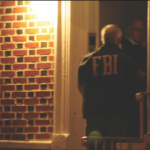Update on Unreasonable Search and Seizure Law
There are limits that police officers have to follow, and the Fourth Amendment is essential to our freedoms as American Citizens.

Evidence Seized in Violation of the Fourth Amendment Must be Suppressed
The Sixth Circuit reversed a conviction on Fourth Amendment grounds in United States v. Felix Booker, No. 11-6311 (Aug. 26, 2013). The allegation on appeal was related to an unreasonable search and seizure. There, the defendant was convicted of possessing one five-ounce rock of crack cocaine. At the time of his arrest, police suspected that Booker had hidden the drugs hidden in his rectum. Because the police could not retrieve the hidden drugs, they took him to an emergency-room doctor for assistance. Without Booker’s consent, the doctor performed a medical procedure and recovered the drugs from Mr. Booker’s body. The process was extensive and medically risky. The court described the procedure as “highly intrusive and dehumanizing.” The doctor had to intubate Mr. Booker for an hour, rendering him unconscious for twenty to thirty minutes, paralyzing him for 7-8 minutes, and ultimately using a finger to remove the crack cocaine and turn it over to the police. The majority attributed the doctor’s conduct to the state for Fourth Amendment purposes since the police delivered Booker to the doctor, stood by without interrupting the procedure, and retained physical control over Booker as their prisoner.
In assessing the reasonableness of the search, the court looked to Supreme Court precedents in Rochin v. California and Winston v. Lee. Both cases held that forced stomach pumping and forced surgery using general anesthesia were unreasonable searches under the constitution. The court observed that the affront to human dignity was compelling under the facts and “shocks the conscience at least as much as the stomach pumping.” Further, the court noted that less intrusive means were available and that police never tried to obtain a court order. The court ordered the evidence suppressed and remanded for further proceedings.
When is a person “seized” for purposes of the Fourth Amendment?
In Michigan, a person is “seized” for purposes of Forth Amendment search and seizure law if a reasonable person under all the circumstances would not believe they were free to leave the officers and proceed on their way.

What does the Fourth Amendment to the United States Constitution say?
The right of the people to be secure in their persons, houses, papers, and effects, against unreasonable searches and seizures, shall not be violated, and no warrants shall issue, but upon probable cause, supported by Oath or affirmation, and particularly describing the place to be searched, and the persons or things to be seized.
This constitutional provision prohibits the search and seizure of people, homes, businesses, and vehicles without probable cause and a warrant, unless one of a few specific warrant exceptions is applicable.
Does an Unreasonable Search and Seizure Violate the Fourth Amendment?
The United States Constitution, through the 4th Amendment, protects people from unreasonable searches and seizures by the government, typically police or other types of law enforcement officers. The Fourth Amendment is not a guarantee against all searches and seizures. Only searches that are deemed unreasonable under the law are prohibited.
Balancing two crucial constitutional interests determines whether a particular type of search and seizure is considered unreasonable. A judge must weigh the extent of the intrusion on an individual’s Fourth Amendment rights against any legitimate governmental interests, such as public safety. Relative to the Fourth Amendment, the extent of the intrusion depends, in part, on the location of the search or seizure.
Locations for Search and Seizure Analysis Under the Fourth Amendment
The extent of any permissible intrusion upon a person’s Fourth Amendment Rights depends on what the police search. The four general search and seizure areas concern searching a person, home or business, school locker, or vehicle.
A Person
When an officer observes conduct, which leads him to conclude that criminal activity may be afoot, the officer may briefly stop the suspicious person and make reasonable inquiries to confirm or dispel the officer’s suspicions.
A Home or Business
Generally, the police must have a warrant based on probable cause before they can search inside a home. There are five (5) exceptions to this rule:
- exigent circumstances,
- plain view,
- consent, and
- search incident to arrest.
Four types of businesses have reduced 4th Amendment protections, including:
- businesses selling liquor,
- businesses dealing in guns and firearms,
- mining companies, and
- automobile junkyards.
Schools
Unlike police officers, school officials do not need to obtain a warrant before searching a student under their authority. The only requirement is that the search of a student is reasonable under the circumstances. If the school officials are acting under the direction of the police, a warrant would be required.
Cars
An officer may conduct a traffic stop if he has reasonable suspicion that a traffic violation has occurred or that there is criminal activity related to the vehicle. Where there is probable cause to believe that a vehicle contains evidence of a crime, an officer may lawfully conduct a warrantless search in any area of the vehicle in which they might find evidence.
Once an officer stops a vehicle lawfully, an officer may conduct a pat-down search of the driver and passengers for weapons. A pat-down, called a Terry Pat-Down, is permissible even if the police do not have reason to believe an occupant of the vehicle is involved in a crime.
The use of a narcotics detection dog to walk around the exterior of a car subject to a valid traffic stop does not require reasonable, explainable suspicion; however, the use of the dog must not significantly extend the time of the traffic stop.
An officer at an international border may conduct routine stops and searches of vehicles and people without reasonable suspicion or probable cause.
Open Fields
An open field, even one posted against trespassing, is not within the protection of the Fourth Amendment. A governmental agent can peer into a structure, such as a bar; however, entry into the structure is not permitted without a warrant.

Michigan Constitutional Rights Lawyers
If you, or a loved one, are faced with a possible unreasonable search and seizure issue, please contact LEWIS & DICKSTEIN, P.L.L.C. We are highly experienced in constitutional law and have an unparalleled track record of success in court. Our lawyers would be happy to discuss and evaluate any legal issues you face. If the government intends to use illegally seized evidence against you, we can file a Motion to Suppress and seek an order excluding that evidence from your case.
Call us today at (248) 263-6800 for a free consultation or complete an online Request for Assistance Form. We will contact you promptly and find a way to help you.












